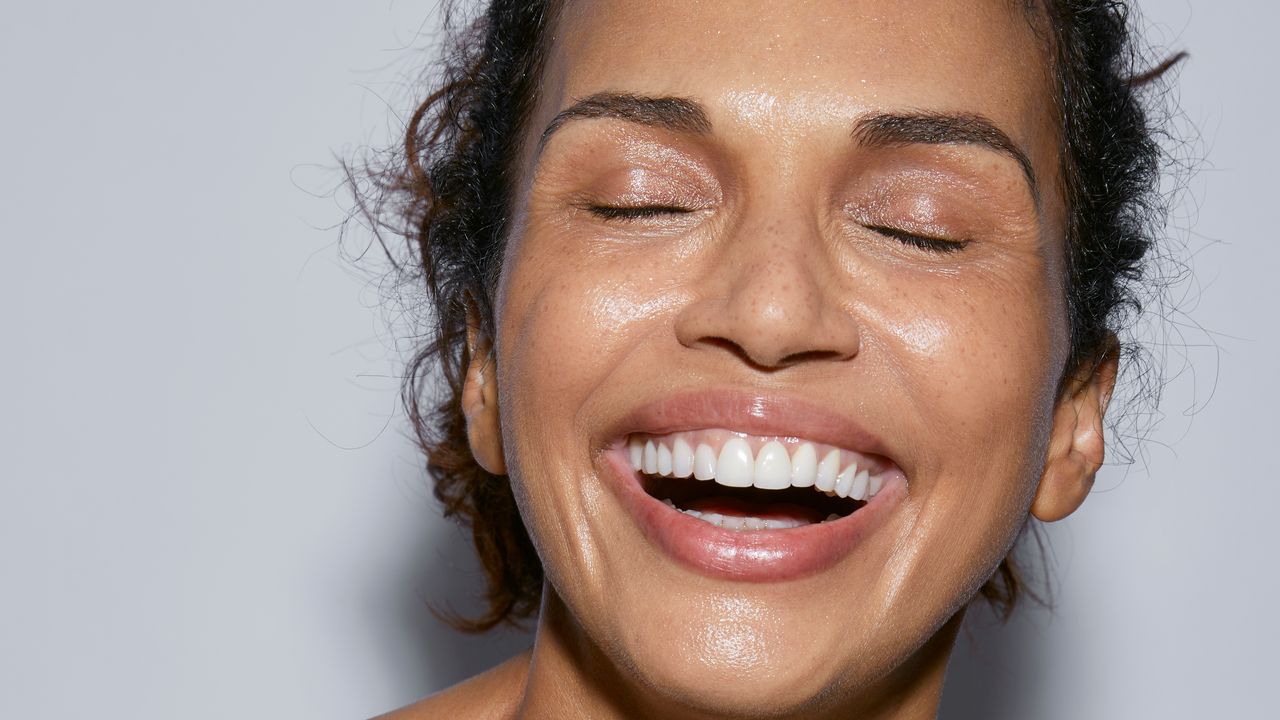
You’ve probably heard of CoQ10 before; it is a common ingredient in many skincare products. Also known by its official name, Coenzyme Q10, it’s one of the most powerful antioxidants currently available. But what exactly is this ingredient that promises to slow down the hands of the clock? And, what benefits can it bring to our health and beauty?
To find out more about CoQ10, we asked the experts: pharmacist Shabir Daya, the creator and formulator behind the supplement brand DoSe and co-founder of UK-based wellness and beauty retailer Victoria Health, and New York City-based board-certified dermatologist, Hadley King, MD.
- Coenzyme Q10 is an antioxidant responsible for producing the energy needed for growth and maintenance of the body.
- The benefits are many, including supporting our metabolism, promoting muscle function, and giving us energy.
- You can use topical products or take supplements to get the most out of its benefits.
What is CoQ10?
Coenzyme Q10 (CoQ10) is an antioxidant compound found naturally in every cell of our body. “It is one of the compounds responsible for producing the energy needed for growth and maintenance of the body,” says Daya.
What is CoQ10 used for?
CoQ10 helps cells respond. “It is used in our bodies, along with magnesium, for the production of adenosine triphosphate (ATP), a molecule that provides our cells with the energy they need for chemical reactions, repair, growth, and other processes,” explains Daya. It is also a powerful antioxidant, as it protects cells from free radicals generated by these processes, which damage our genetic material.
What are the benefits of CoQ10?
CoQ10 does a lot for our bodies. Some of its benefits include the following:
Support Our Metabolism
The highest concentrations of natural CoQ10 are found in the heart, liver, kidneys, and pancreas—these glands have high metabolic and energy requirements, and therefore require higher amounts of CoQ10.
Promote Proper Muscle Function
Coenzyme Q10 also promotes proper muscle function, perhaps due to its mild blood-thinning properties that help to improve circulation and oxygenation of all the tissues in the body. Finally, CoQ10 is necessary for the body’s largest organ, the skin. As Daya points out, “It helps maintain healthy cell growth in the skin and may protect it from free radicals and helps protect the skin from photoaging caused by UV rays.”
Protect skin and body
Studies show that taking CoQ10 can protect cells throughout the body from oxidative stress and protects skin from photo-aging and premature aging, stimulates collagen production, and prevents wrinkles.
Ease Pain
It could help ease migraines, and it may be helpful to athletes as it helps fight fatigue and reduce muscle aches and pains.
Prevent Diseases
Studies show that CoQ10 could prevent heart disease by boosting the production of energy needed for cardiac activities. It may also protect against neurodegenerative diseases, due to its free-radical protective action on the nervous system and brain. It may also help prevent certain types of cancer and relieve gum disease.
Support Fertility
Studies show that it may help fertility by supporting healthy egg and sperm growth.
Who shouldn’t take Coenzyme Q10?
High dosages of CoQ10 (anything more than 100 mg per day) may cause nausea and diarrhea. Dr. King says that those on blood thinners or blood pressure medications should avoid it. “CoQ10 is structurally similar to vitamin K and may reduce the effectiveness of blood thinners [and] increase the risk of clots,” Dr. King says. “[It] can [also] lower blood pressure and may amplify effects of blood pressure medications, resulting in low blood pressure and lightheadedness.”
She adds that some data suggest that CoQ10 may decrease the efficacy of some chemo drugs, and some small studies suggest it might be harmful for those who are pregnant or breastfeeding.
Should I take a Coenzyme Q10 supplement?
Our bodies naturally produce CoQ10, but our ability to produce this nutrient—as with many other compounds—declines with age. And, although CoQ10 is naturally available in small amounts in foods like meat and fish, the amount in our body decreases dramatically with age—so much so that by the time you reach the age of 40, your body has, on average, half the levels it had when you were young.
Taking a CoQ10 supplement could be useful as we age—especially if we are prone to certain health conditions like heart disease, diabetes, certain cancers, and neurodegenerative diseases. “While it has no direct effect on cholesterol, I recommend ubiquinol supplementation for those taking statins, which deplete CoQ10 levels and often cause muscle pain,” explains Daya. “I also recommend it for anyone over 40, those with low energy levels, and anyone who wants to maintain healthy skin and protect it from premature aging, as CoQ10 protects against oxidative damage.”
#CoQ10 #Healthy #Aging #Vogue






